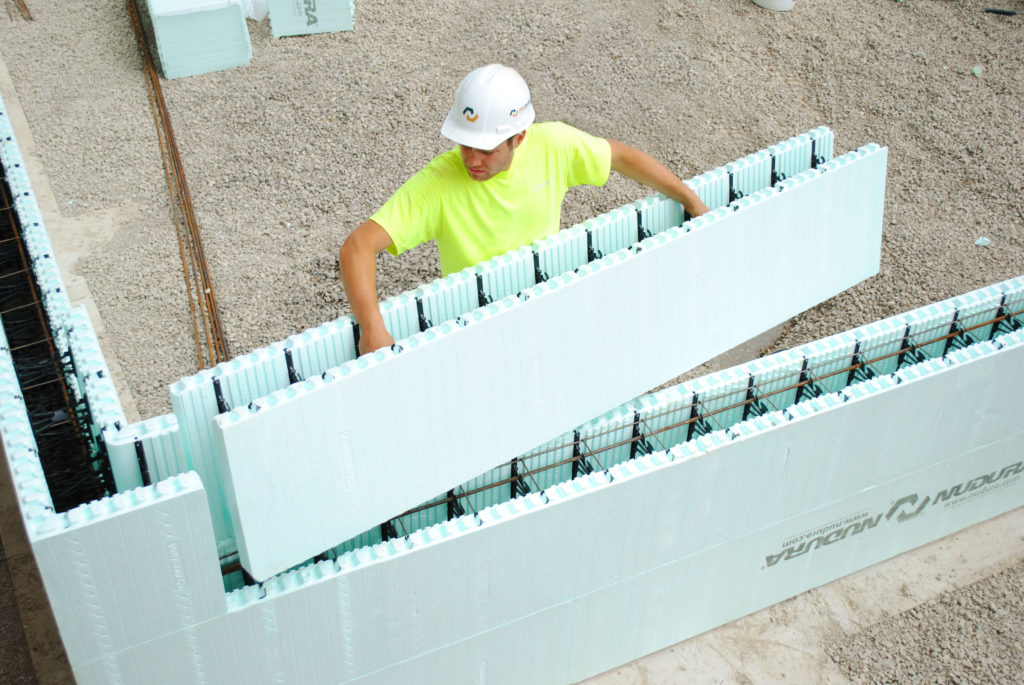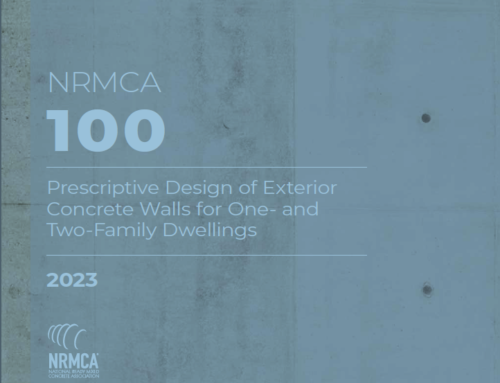
The latest home-building technology is finally putting a major dent in the high cost of heating and cooling. If you are in the market to build the most energy efficient new home possible, experts recommend you should consider the many benefits of concrete.
Concrete houses made using the latest advanced system of pre-fabricated, interlocking insulated concrete forms (ICFs) can help you save on energy consumption and cut your energy bills by more than half. “Our ICF system creates an envelope of superior strength, continuous insulation, conservation and energy efficiency,” explained Keven Rector at NUDURA, a leading name in building with insulated concrete forms. “They provide tighter construction and stronger insulation as the walls conserve heating and cooling energy in a much
more efficient manner than traditional wooden-frame walls. Subsequently, monthly energy consumption bills are considerably reduced.”
Concrete houses lead to an array of savings
The Insulating Concrete Forms Manufacturers Association (ICFMA) recently conducted third-party testing from CLEB Laboratories which highlights the energy savings of ICF when compared to conventional wood framing. The thermal study proves an ICF wall can achieve up to 60% energy savings and 58% greater R-value for home and building owners.
How does it work?
At the building site, the ICFs interlock (like Lego) to create one thick monolithic wall. The assembly is quick, creates less waste, and according to Rector, this type of home-building technology is not only solving energy costs it’s a solution for storm security, interior air quality and occupant conservation priorities all at the same time.
“In addition to greater impact resilience and a fire-protection rating of up to four hours, concrete buildings are more comfortable to live in,” he added. Concrete walls have a heat-absorbing property, preventing drastic temperature swings, cold and hot drafts. In other words, when it is cold outside, concrete walls have the ability to stay warmer. And when the temperature climbs, they can stay cooler. As less energy is needed in both cases, energy costs are greatly reduced compared to walls in wood-frame houses.
Concrete walls offer a healthier indoor environment
Another advantage of ICF walls is they are highly effective as sound barriers. But more than that, they provide a healthier indoor environment as ICFs and concrete are not an appealing food source for termites, rodents or ants. As there is no organic material used, the growth of mold, mildew and other harmful microorganisms is also drastically reduced, hence resulting in healthier indoor air.
Long-term, concrete houses definitely require less maintenance and repair than wood-frame houses. As they are non-biodegradable, concrete and ICFs are not prone to rot or deterioration as is the case with lumber. More information is available at www.nudura.com.












